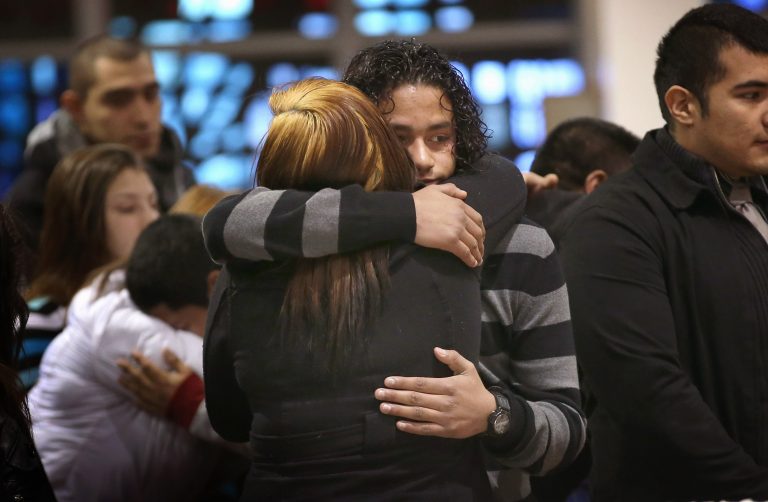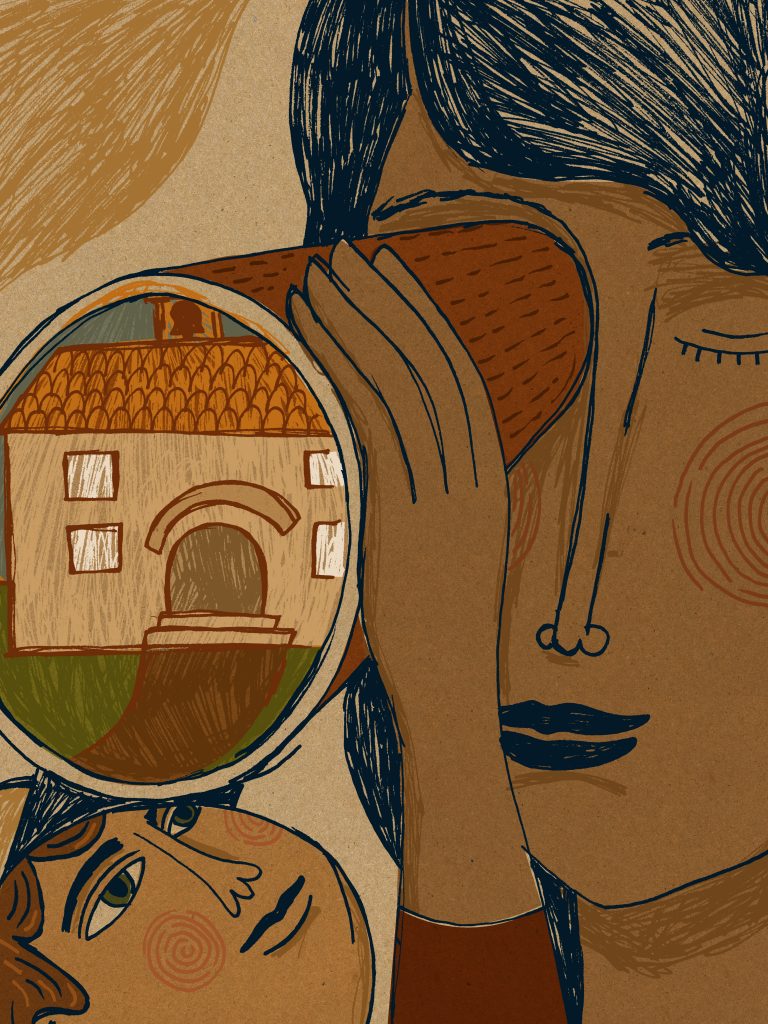
Image by Scott Olson/Getty Images.
So Far From Want
When President Abraham Lincoln declared the last Thursday of November as “a day of thanksgiving and praise” for the nation, he did so in the midst of war, 1863. He asked people to thank God for “bounties, which are so constantly enjoyed that we are prone to forget the source from which they come.”
Lincoln’s proclamation included another, equally weighty request: that we repent and remember the bereft, that we “do also, with humble penitence for our national perverseness and disobedience, commend to [God’s] tender care all who have become widows, orphans, mourners, or sufferers in the lamentable civil strife in which we are unavoidably engaged, and fervently implore the interposition of the Almighty hand to heal the wounds of the nation….”
That notion — that our celebrations of abundance should be coupled with mindfulness of need — goes back to the earliest American Thanksgiving in 1621. One witness described that event in rich detail: colonists, Indians, “their greatest king Massasoit,” deer, fowl, harvest, three days of feasting. He wrote that “although it be not always so plentiful as it was at this time with us, yet by the goodness of God, we are so far from want that we often wish you partakers of our plenty.”
I thought about “want” the other day in the lockup at the courthouse where I work. I am a public defender in Chicago, and I start each workday in the place behind the courtroom where prisoners are held. On this morning, the small, stuffy cell was crammed with people.
They were all young men charged with burglaries. There had been a sweep of teenagers, most of them accused of breaking into homes and cars in Chicago’s suburbs.
As I interviewed them, one by one, a pattern emerged. Almost all had come from perilous childhoods: neglect, abandonment, abuse.
I asked one young man why he and his siblings had been taken away from their birth home. “My mom chose drugs over us,” he said simply. Most of the young men were living in group institutions, foster homes, or the apartments of overburdened relatives where the defining characteristics were poverty and the lack of any responsible adult who cared deeply for them.
Another pattern emerged. All were in school, even involved in after-school sports. None had a criminal background. These were promising young men.
I had to ask: how is it that a good kid like you is accused of stealing? One young man in foster care motioned to the clothes he was wearing — jogging pants with holes in the knees and a grimy t-shirt — and explained that by the time his foster mom paid the rent and food bills, there was no money left for clothes. Another dropped his head in his folded arms on the table, telling me how his aunt complained bitterly about the money he was costing her. She wanted him to help with expenses. Others had been part of a mentoring program; their mentor allegedly exploited them by recruiting them to do the crimes.
Scarcity. Want. My city is full of such children.
When they were brought into the courtroom for their hearings, the judge set bonds too high for the young men to post. They knew what that meant. They were going to jail.
After the last hearing, I heard wailing from the lockup. I went to check, and saw this sight: a cell full of teenaged boys, sobbing and wiping away tears. Two boys, perhaps strangers until that moment, clutched each other’s heads with their hands and held tight as they cried. It was a gesture of comfort in despair. These boys had no money for clothes or bail, but they had this: the impulse to care, to help.
The image of those boys, led by a thousand failures to that moment, should move us to a Thanksgiving repentance. Amid bounty, what do we owe to children unguided and uncared for? Amid scarcity, how do we celebrate abundance? To be so far from want that we wish others to be partakers of our plenty — that is something for which to give thanks.

